A-Corp tour diary
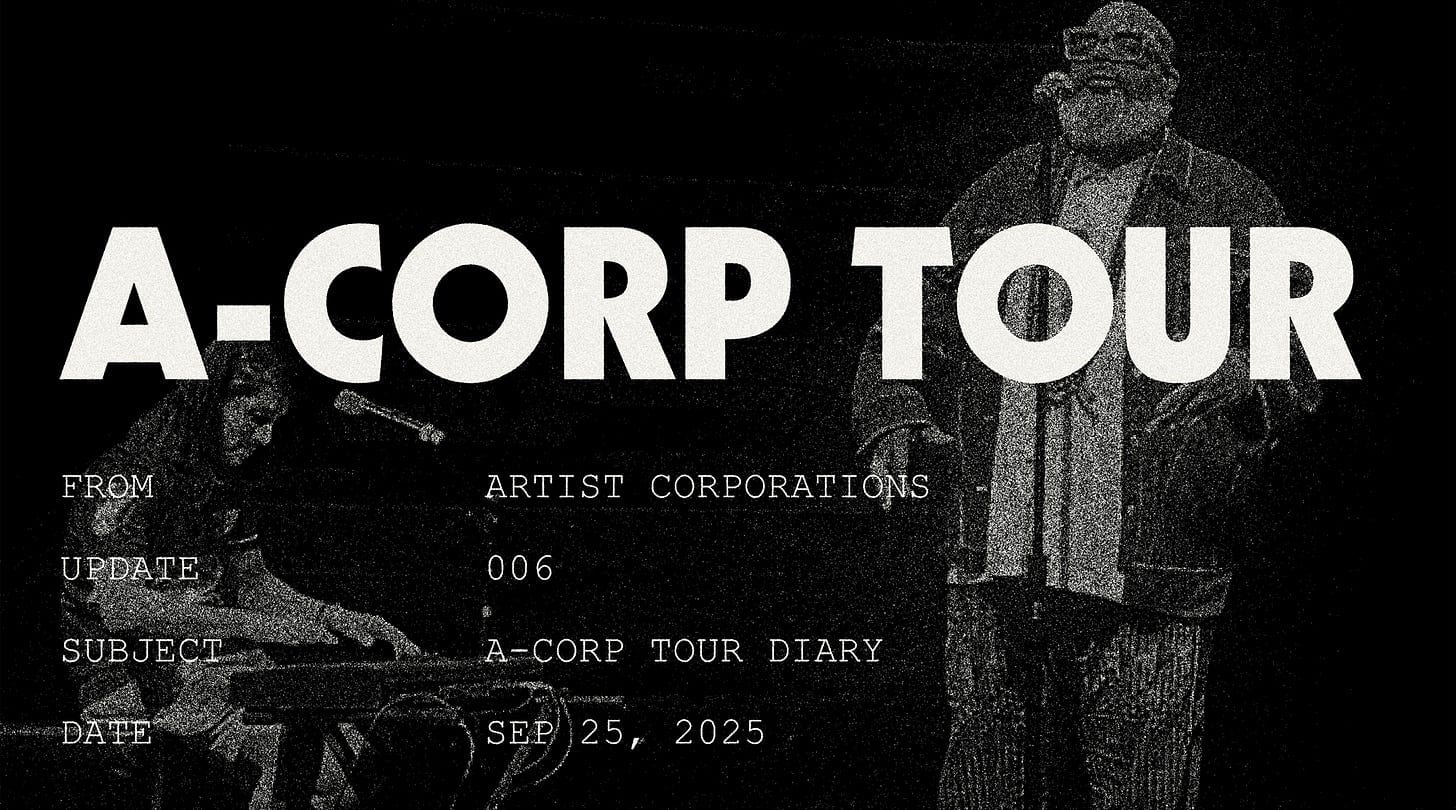
The past week I’ve been on the road, giving talks and speaking with artists, creators, and community and political leaders across the US about Artist Corporations.
I enter these spaces with a specific mindset: I’m not here as Yancey the individual. I’m here representing a wide, diverse community of creative people. To remind myself of this, I constantly think and speak in a “we” voice — this project and work belongs to all of us.
Below I walk through the public conversations that “we” (me in physical form, all of us energetically) had with arts, civic, and political leaders about A-Corps last week. There was lots of enthusiasm and excitement, and significant progress (that we’re keeping under wraps for now, but more soon).
Three days in Colorado
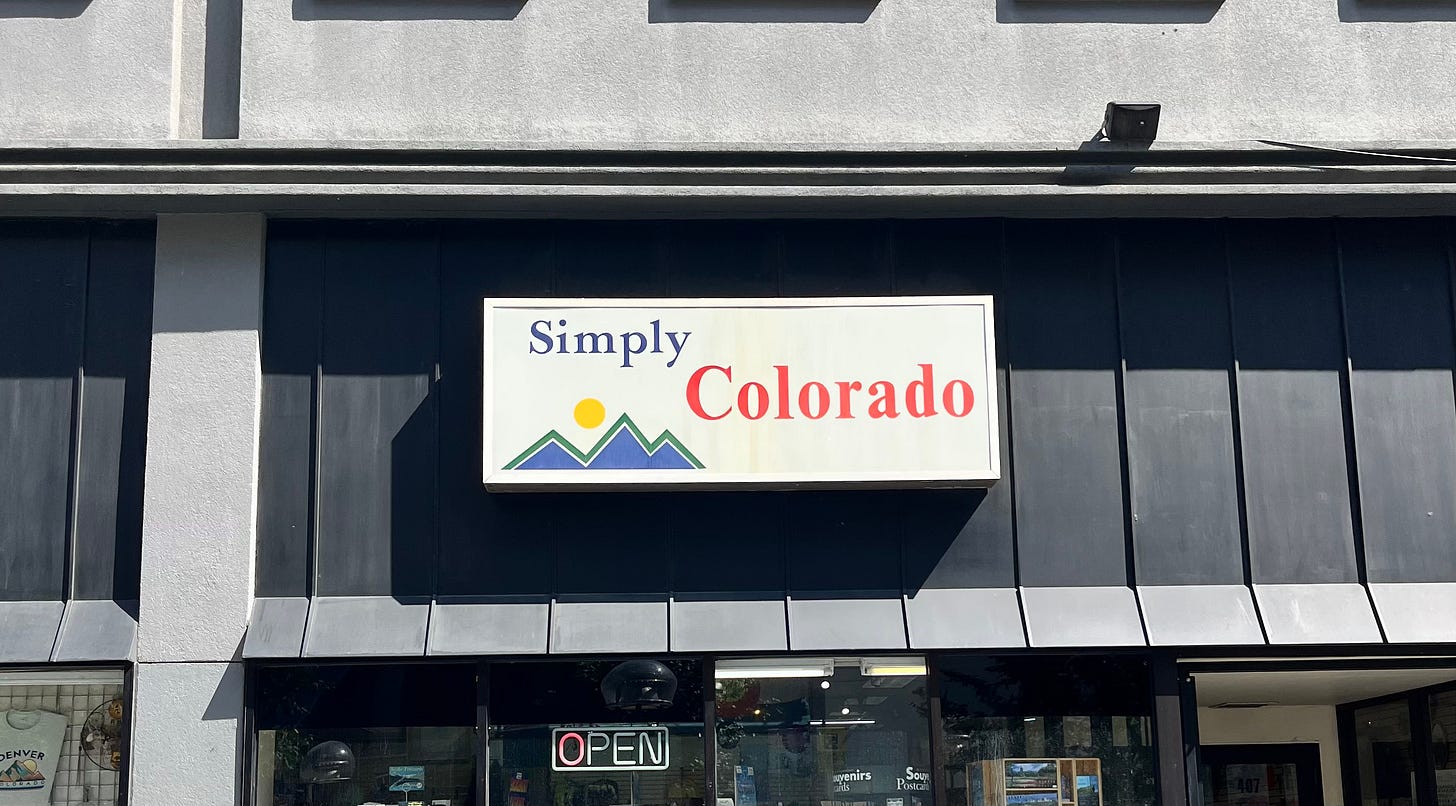
Our travels started in Colorado, an early area of focus for our work. Three events brought us there, and each elicited new learnings and communities to think about.
Colorado Startup Week

Our first stop was at Colorado Startup Week for a conversation with Dr. Brianna Figuero, CEO of CreativeStartups.org, a nonprofit that helps artists develop the business aspects of what they do. (Meow Wolf, also Kickstarter veterans, was a project they worked with early on.)
Our conversation was followed by a half-hour of questions, which included queries about how art venues and arts districts could take advantage of A-Corps and multiple offers to help us make A-Corps happen in Colorado. We’re already in follow-up conversations with a few people we met here.
National Volunteer Lawyers for the Arts Conference
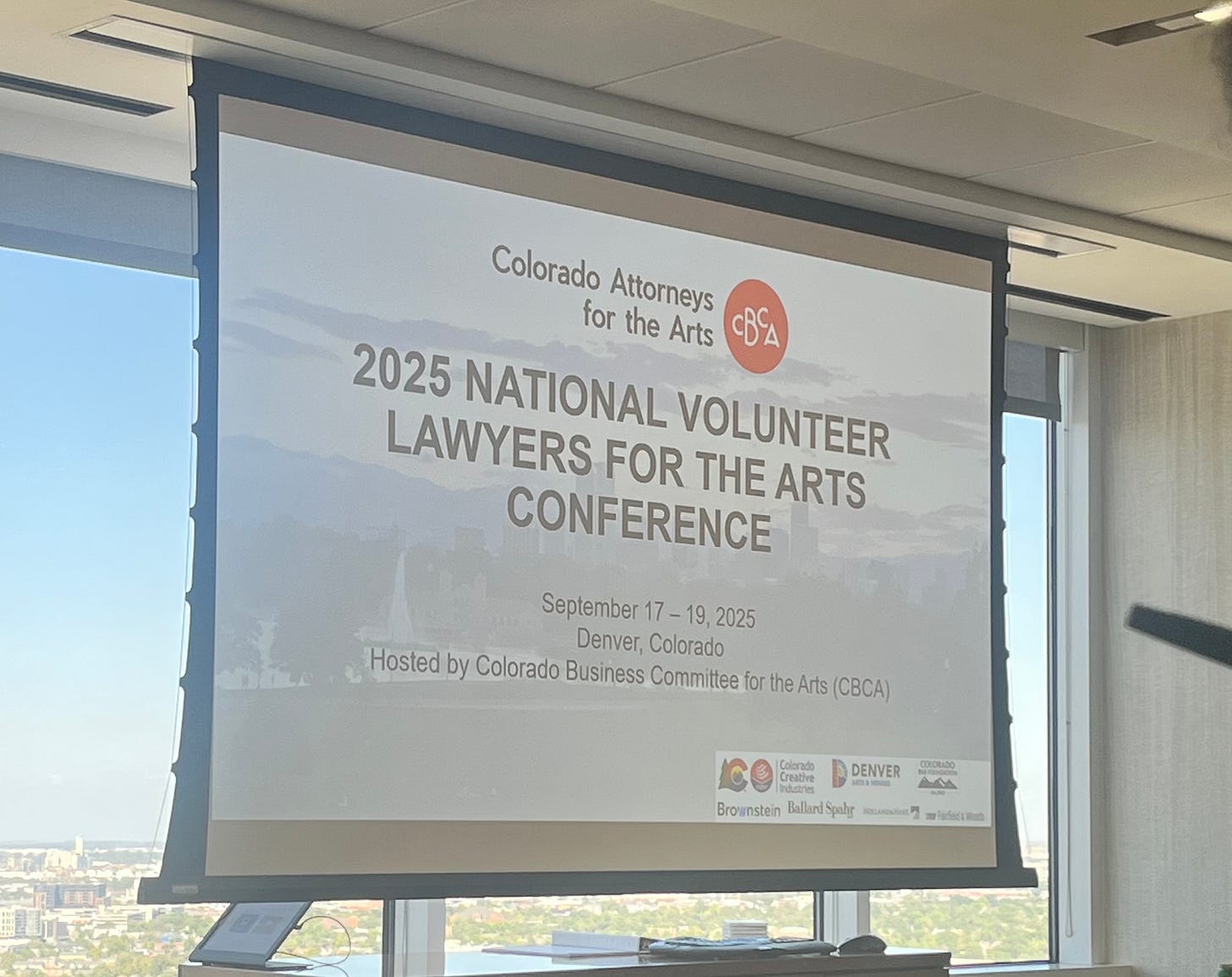
Our second stop came later that same day at a national gathering of volunteer arts lawyers, many of whom, I learned, dedicate both their working and personal hours to legally supporting creative people. Amazing!
We were there as the unusual guest speaker with the wild idea related to a subject they’re literally the world’s experts on. Every ounce of imposter syndrome in us (me) was on fire. If ever my non-lawyer f’ing around was going to get found out, this would be the place.
I used the time to walk through a presentation similar to what I shared at our Community Call last week. This included going through the exact language of the initial draft of the bill. There was lots of time for questions afterwards. I was braced for all possible outcomes.
What came back: curiosity and enthusiasm, and lots of very knowledgable questions. Some examples:
- This seems like a useful structure for my clients. How would they convert from an existing LLC or S-Corp? (Other lawyers in the room had good answers for this.)
- If an artist creates an A-Corp, what stops them from getting sued by an investor if they aren’t shareholder maximizing? (The A-Corp Articles of Incorporation allow for an artist/creator to establish the different goals or bottom lines of their project, much like Benefit Corporations do.)
- Some aspects of this are clearly law-based, but other parts feel more like a kind of credential. Should those be separate parts of this project? (A great question we’ve been thinking about.)
The questions revealed where there’s more tightening to do, which was very helpful. If/when A-Corps become law, these are some of the people who will be actually using it the most. Overall the work seemed to hit the mark for this expert group.
Colorado creative, community, and civic private briefing
The following morning in Denver we were the guest speaker at a private event hosted by some influential friends of the A-Corp movement. It brought together the Directors, CEOs, and officers of more than a dozen cultural and civic groups across Colorado to learn about Artist Corporations and what they might mean for their communities.
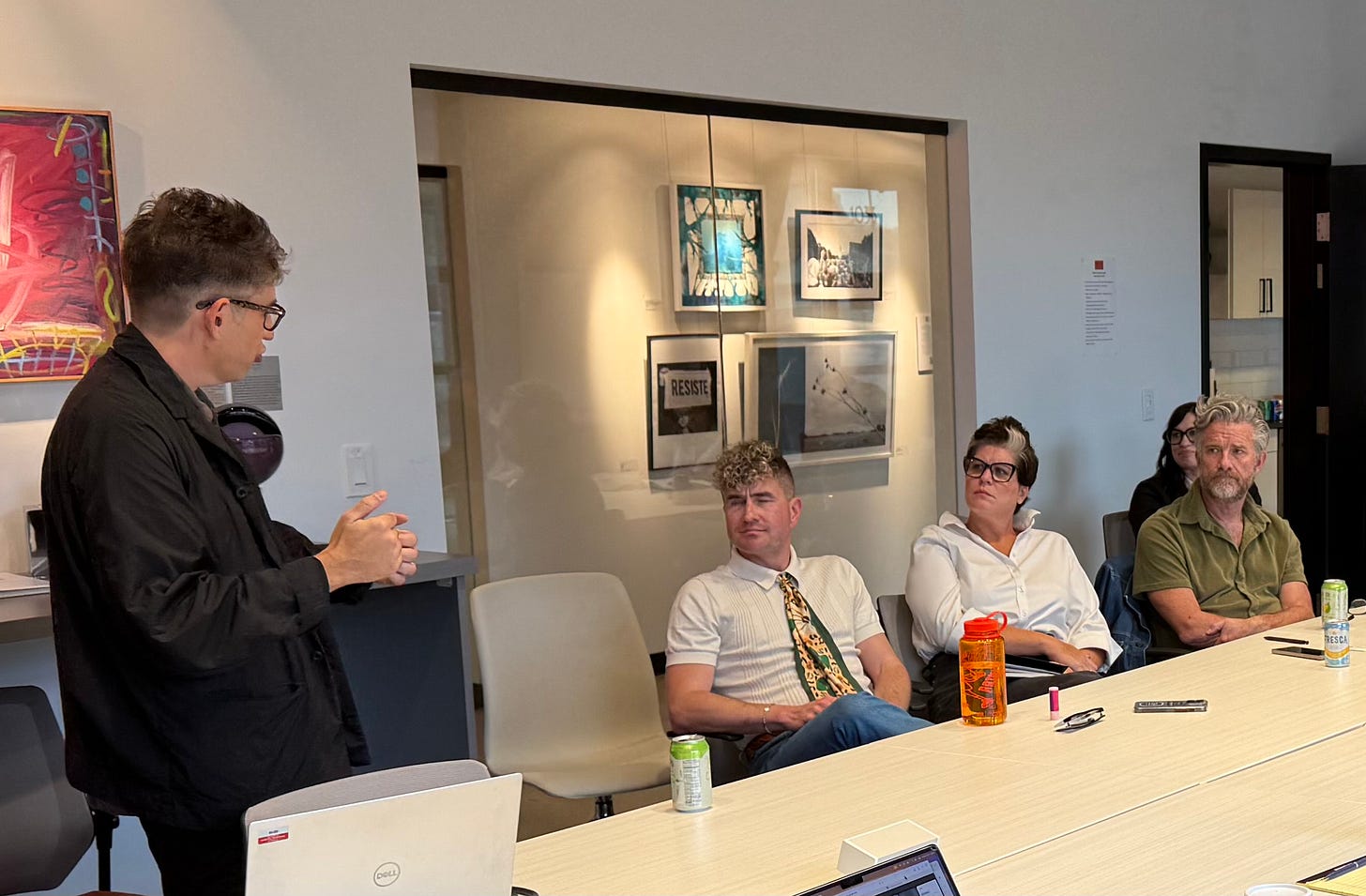
This conversation was especially interesting, as many of these leaders actively support working artists right now. As a result, their attention was on making sure A-Corps don’t just exist, but are successful with the resources and training they need. Several domain experts in both legal and policy also had thoughtful suggestions we’re exploring related to tax status and specific provisions in the potential law. This was one of the most in the weeds conversations we’ve had to date.
Washington, D.C.: Creative Labor, Creative Conditions with DC Jazzfest and the Doris Duke Foundation
After less than 48 hours back in NYC, on Monday we caught a 5:30am train before the morning light to Washington, D.C. for a day-long symposium on creative labor and workers hosted by the Doris Duke Foundation.
We were invited to join a panel on “Artist Workers in the Economy” hosted by NEA research director Sunil Iyengar that included an all-star group: Kamilah Forbes (The Apollo Theater), Jessica Mele (Center for Cultural Innovation), Caroline Woolard (Art.Coop), Kristina Newman Scott (The Knight Foundation), and us.
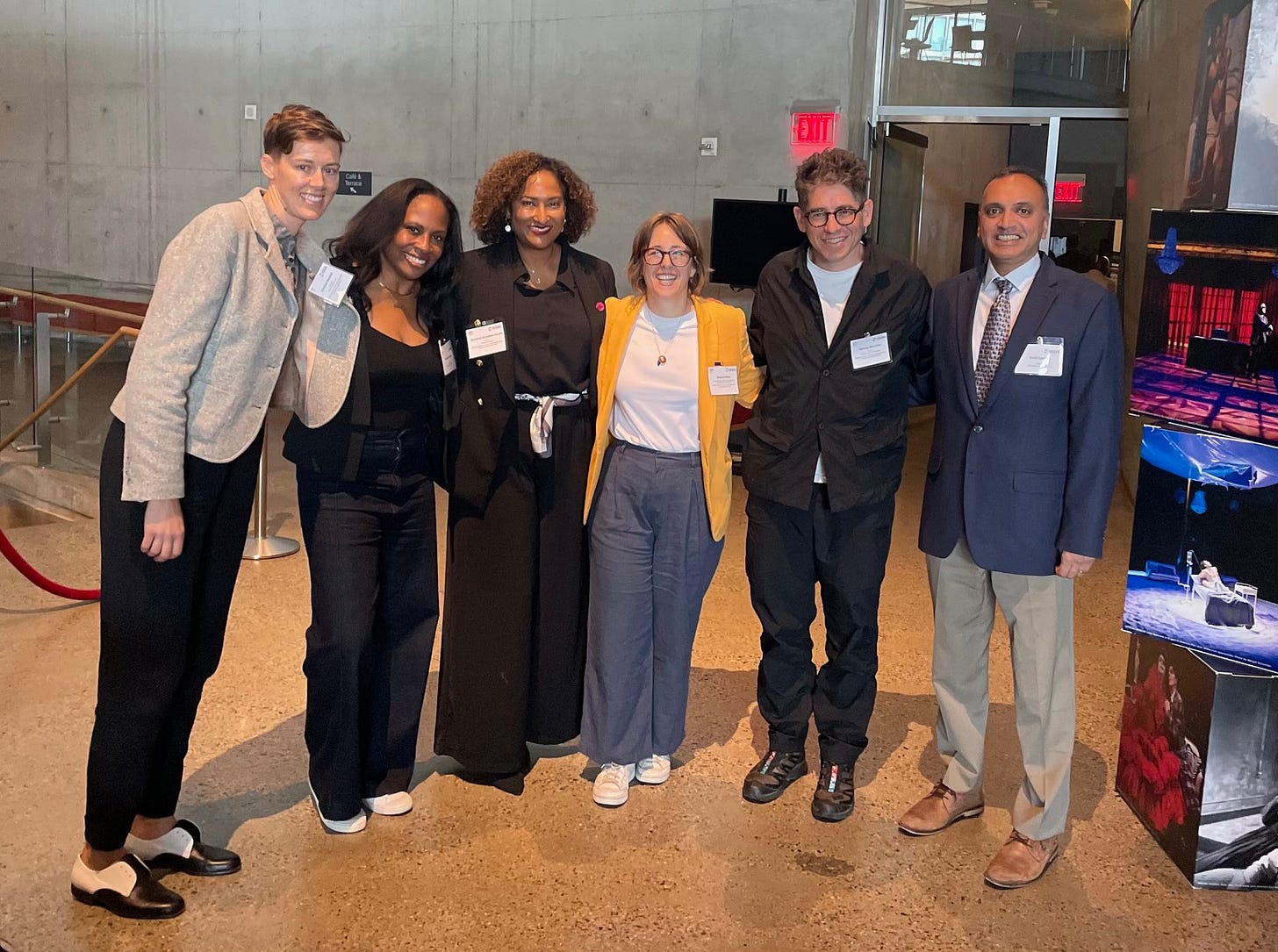
We were asked in the first question what the general public might not know about creative labor. We answered that creative work is:
- No longer fringe: 48% of Americans have a creative practice
- Growing not peaking: creator is the most desired profession by young people
- Not defined by starving artists: the creator economy will be a $900 billion industry by the end of this decade
- A major driver within capitalism even though its workers do not get to participate in it: no equity or stock for artists and creators (yet)
- Good for the soul: equally meaningful for the people who make it and the people who enjoy it
The rest of the panel had many great insights and perspectives to share.
But the real highlights of the day came from the guest performances — including the String Queens, Step Afrika, and an amazing talk by author Jason Reynolds. And, in a surprise we did not see coming, when the musician Kokayitook the stage, they proceeded to freestyle about A-Corps?!?!?
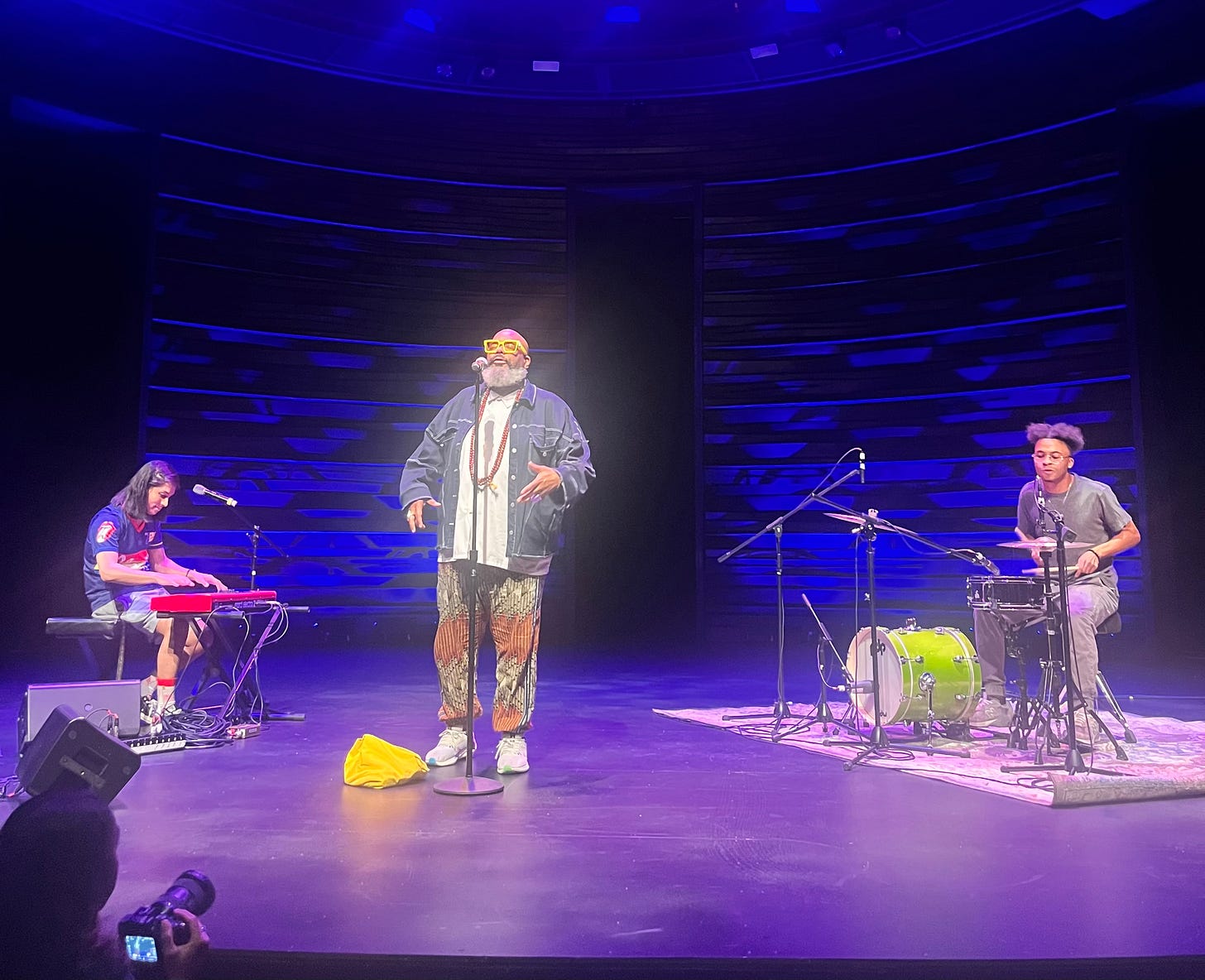
It happened too quick and unexpectedly to get a video, but a major “it’s real!” moment for sure.
This is just the start
Even more than we’re wearied from the travel, we’re energized by these interactions and what they point towards.
Coast to Coast, conversation by conversation, bit by bit, the A-Corp message is spreading. More and more people are joining our ranks. The movement is growing.
We’re still at the starting line. There’s so much farther to go and more fun to be had. We’re doing it gang. All of us. Together. YES!
Yancey